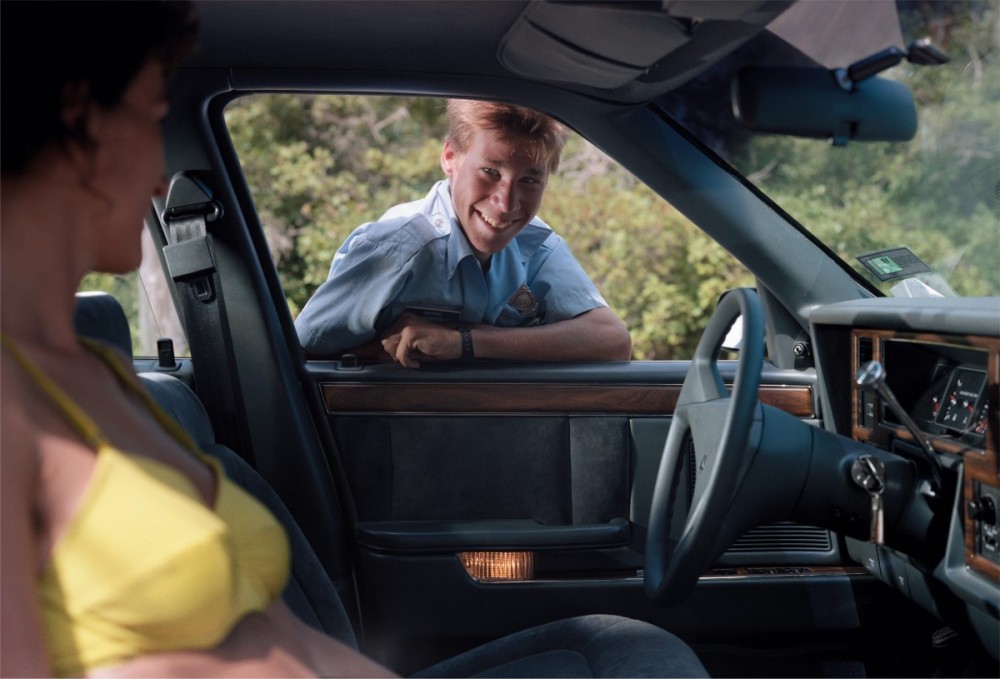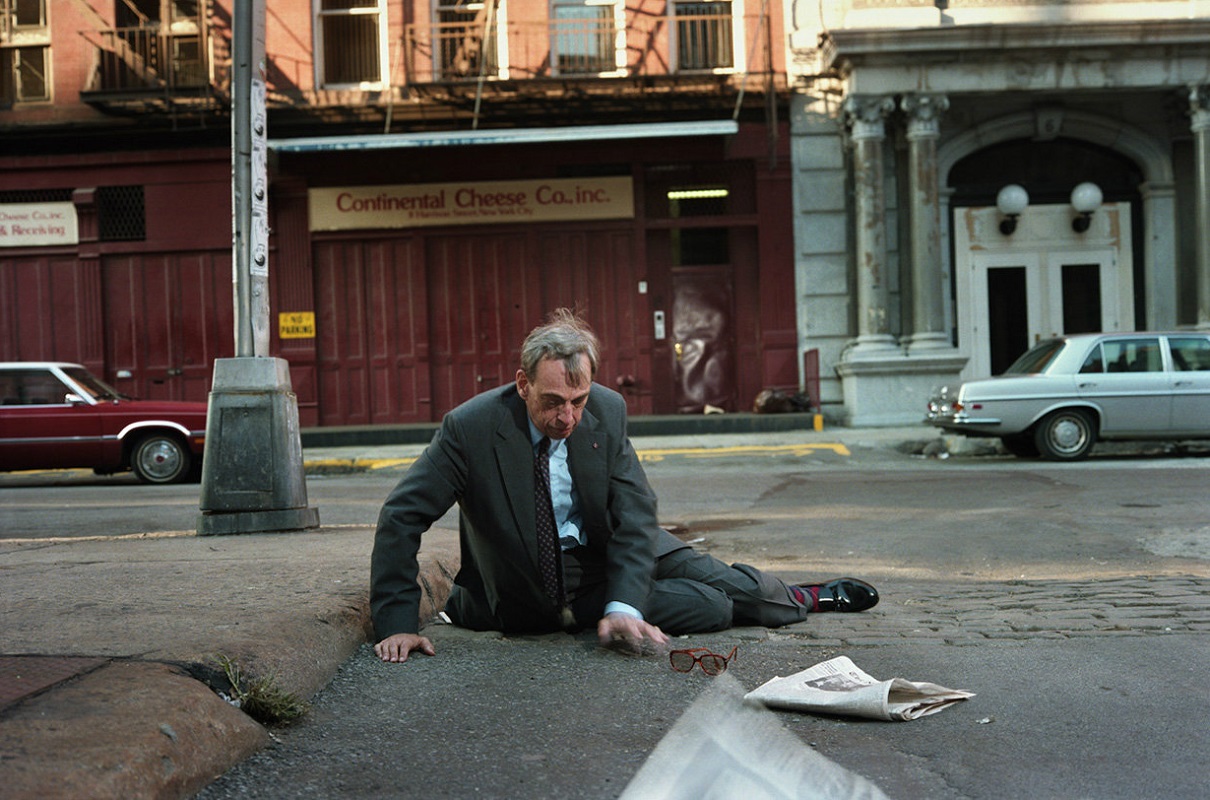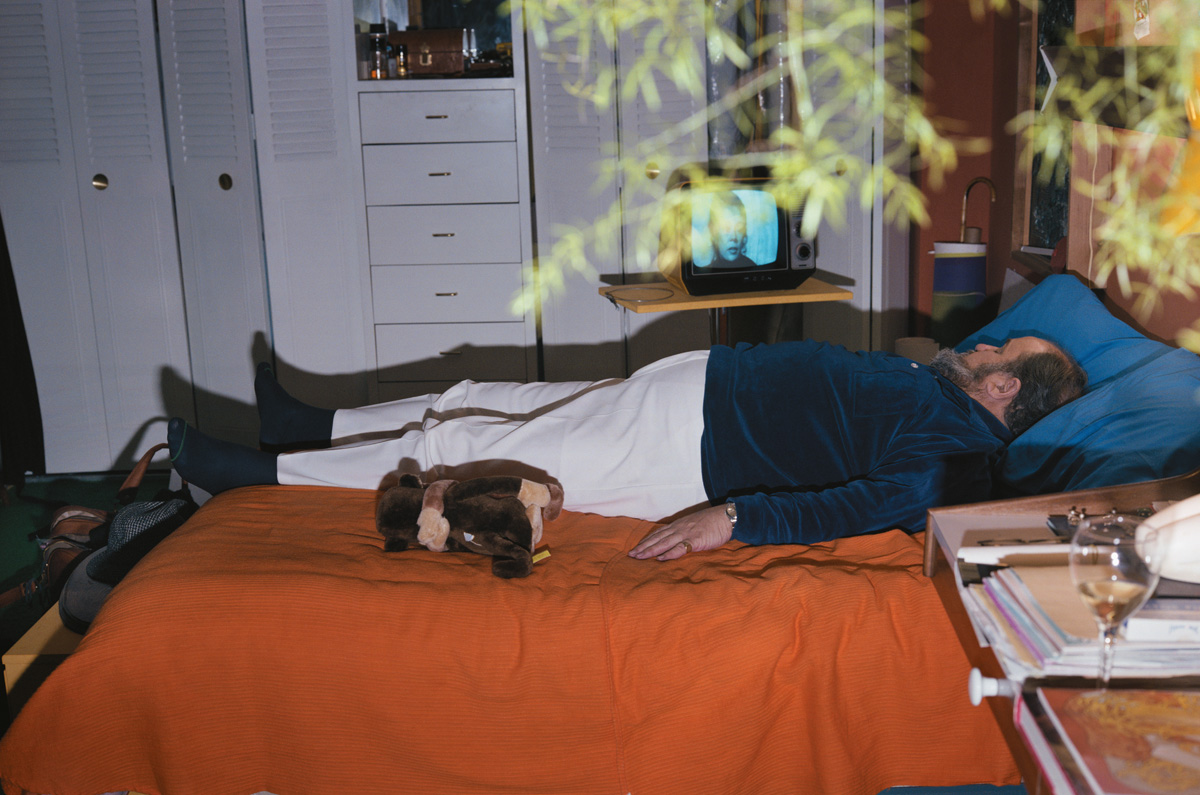“I was drawing upon things that I’ve learned and those are not necessarily intellectual things.”
Dorian Devens and Philip-Lorca diCorcia, 2003
PLDC: I don’t consider myself to be an intellectual, you know, I think I’ve met enough intellectuals to know what a really smart person is… analytical I might be, but, you know, one of the jokes about all of the sort of philosophically propped up art that’s out there, all the theory based work that you can see is how probably intellectually feeble and cartoonish to anybody knows anything about the references that it’s using, and, as far as narrative is concerned, any Balzac novel has a narrative that makes “A Storybook Life” look like a Lucy cartoon, but, it’s not really that I am trying to compete on the same level. You know, I mean, I am trying, as I say, I think you learn things. And, the reason, this is my first book really that I did. The other books were more or less put together by an institution and someone else and I did this book and I consider it a work because I was drawing upon things that I’ve learned and those are not necessarily intellectual things.
DD: Even though it’s a narrative, there’s a way you can see it as circular…
PLDC: Well, it is circular…
DD: The first and last image are the same person alive and dead but they are both lying down and you can kind of go around, and, I don’t know, maybe I’m just reading too much into it…
PLDC: Well, sometimes, someone has said to me that it often seems, when they’re looking at it, like their idea of what it would be like to have your life flash in front of you… you know, certainly, I’ve even talked about this to my 10 year old… and he was like, “Dad, do you think that people really remember everything that happened in their life before they die…” and I said, “I don’t think they remember ‘everything’ but, yeah, I’m sure your life flashes before you.” And, I’m also sure that it doesn’t happen in the right order. And, I’m also sure that things that didn’t seem important get priority over the things which I think as benchmarks, and you know, a sort of bio, you would think would be prominent. It’s like a dream state, you know, there is a bit of cognitive dissonance involved. You know, why are these two people in the same dream. And it seems to me that everybody seems to know that the brain is a constructed device, and that perception is half taught. (“The Storybook Life”) does seem to imitate films. I just wanted to use lights and by default it looks like a film still.


“I mean, I consider it (photography) work, sometimes it kind of agonizing and can be extremely frustrating and, you know, I’ve said this before but I practice it as little as I possibly can.”
DD: Yeah, films sort of own that I guess in some people’s minds…
PLDC: Yeah, there are conventions too… for instance, if I don’t have someone look at the camera, that makes it look like a film still right there. The fact that there is no direct engagement because… you know in photographs there is this assumption that there is a photographer there and I try to remove myself and my presence from the perception of the image. I am not referring to that fact that I was actually there and that reminds people of films ’cause that’s a omniscience is a convention of film and also the point of view – I don’t put the camera to my face very often, you know, it’s always from a point of view that is not mine actually, or most peoples. That too is a reference to but it has nothing to do with the reason I do it.
DD: They’re just tools you like that you happen to use…
PLDC: You know, I probably had an intellectual justification for it… I did at one point have a reason why I did that and then I just like the way it looked and kept doing it…


DD: Are those intellectual justifications before or after the fact usually?
PLDC: Well, usually the justification came before the fact, but the perpetuation of that was based on the fact that I just liked the way it looked. All of the theorizing that might go on in… cause, I’m kind of a reluctant photographer, I mean, when I’ve got myself working, I’ve got to really beat myself up a bit. I don’t like doing it to tell the truth. I mean, I consider it work, sometimes it kind of agonizing and can be extremely frustrating and, you know, I’ve said this before but I practice it (photography) as little as I possibly can. I tend to try to talk myself into it. But then, once I’m into it I’m not talking anymore. I just know what I like, what’s interesting to me and I’ve always worked on that… I’ve never changed what was interesting to me in order to make it interesting to someone else and at some point, the world caught up with me, and, you know, maybe it will pass me by but, that didn’t happen overnight and there were many people and still are people that do not like what I do. And I think that it’s like anybody. I can’t take responsibility for having made myself what I am because I was just doing what I did.
Transcription excerpt from a conversation on The Speakeasy, WFMU.org
Philip-Lorca diCorcia
EXPLORE ALL PHILIP-LORCA DICORCIA ON ASX
(All rights reserved. Text @ Dorian Devens. Images @ Philip-Lorca diCorcia.)




